


Evangelicals in the area suffer persecution since 2016, with physical attacks, property destruction, looting, jail, and a ban of the use of water wells and schooling their children.

Over 13,000 dead and nine million displaced in a forgotten conflict. “It doesn't get the same attention as other wars in the world”, says a Christian in the region.
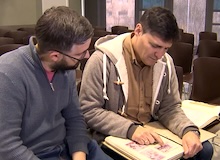
A public television report shows the situation of pastors who have not been able to get their pensions because their work during the Franco regime was not recognised.

Christians denounce the harassment of leaders and missionaries by the Nicaraguan government for fear of the influence of their social and spiritual work.

“Jesus Christ teaches us not to kill and he followed this also”, said a Baptist sentenced with two-year jail term for refusing military service.

When the problems are perceived as structural rather than individual, it is difficult to assign responsibility.

The official report includes a guide with the most common mistakes and proposals to avoid them.
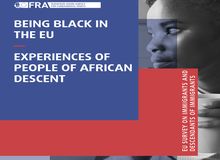
The ‘Being Black in the EU’ survey shows that the cases of racial discrimination increased from 39% to 45% in 5 years. Only 9% are reported.

I am alarmed at the number of soundbites that promote intolerance, all in the name of freedom of speech.

A month after the attack on a Christian colony in Faisalabad, Imran, a Pakistani Christian, analyses the situation on the ground. “Churches fear a repetition”, he says.

Two long-established stations are left out of the broadcasting allocations although they met the requirements.

All of us have the same value to God, and nobody has any right to feel superior.
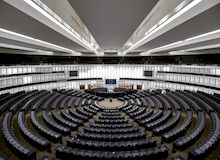
MEPs adopt a resolution asking Indian government to take action in Manipur, where tribal and religious conflict already left 250 churches destroyed.

Kristie Higgs encouraged people to challenge the government’s plans to introduce relationships and sex education to children in primary schools.

A Bible-believing Christian, David Mackereth was dismissed by the government. He hopes his legal battle will “encourage medics to speak out more on these issues”.

A survey by Forum 18 shows that “violations of the human rights have increased since fraudulent presidential elections and the regime's support for Russia's invasion of Ukraine”.

The Federation of Evangelical Religious Entities of Spain analyses the challenges and achievements of evangelical churches in 2022.

Local authorities accused the Christian leaders of “tricking new members and disuniting the Bulgarian nation”. The religious freedom of the pastors was violated with “pejorative and hostile language”, says the European Union Human Rights court.

The FIFA World Cup has turned critical eyes to the small Persian Gulf country. Three people on the ground analyse the freedom of Christians.

Evangelicals denounce that the Constitution “will divide rather than unite the people of Chile, weaken democracy” and that the government did reject their proposals.
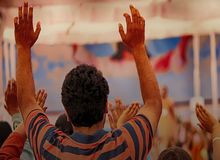
Rethinking Christian witness in a BJP-run nation. An article by Cynthia Stephen.

The International Ministerial on Freedom of Religion or Belief says it aims to “tackle online harm and strengthen human rights education”. Evangelicals say “words must be matched with action”.

While the state of Karnataka passes an 'anti-conversion' law, evangelicals denounce the government “is empowering lynch mobs to target the next Christian they see”.
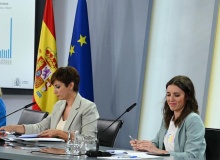
Despite the negative report of the General Council of the Judiciary, there are hardly any changes. The change of sex may be made without restrictions or prior reports.

The World Evangelical Alliance sends a report to the United Nations denouncing “how the Indian government has fostered violence and legal discrimination against religious and social minorities”.

Las opiniones vertidas por nuestros colaboradores se realizan a nivel personal, pudiendo coincidir o no con la postura de la dirección de Protestante Digital.